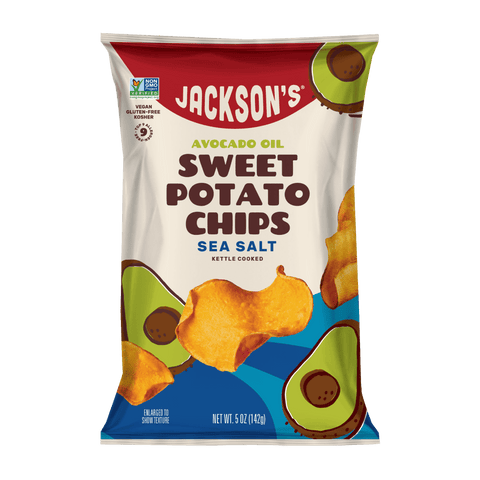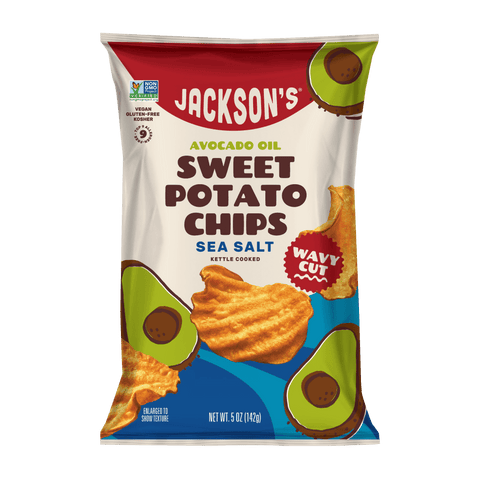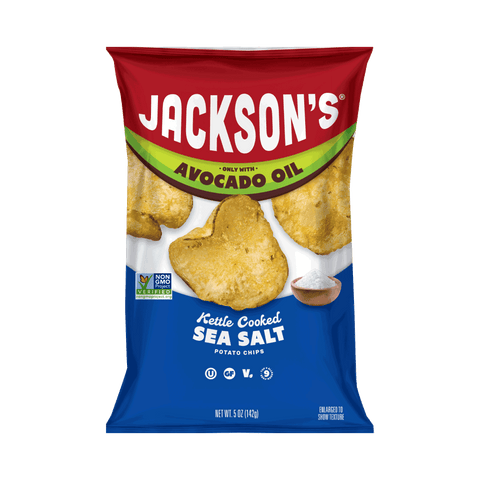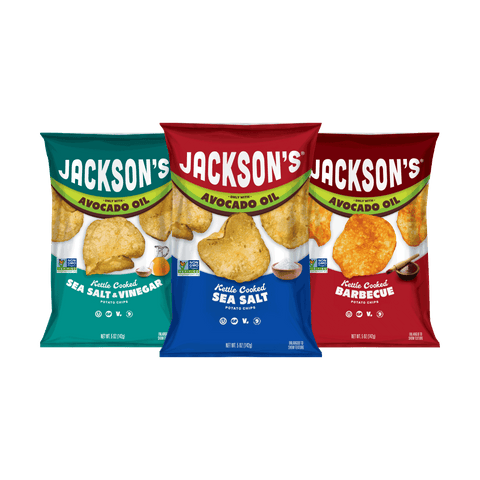Seed Oil vs. Animal Fat: The Great Fat Face-Off

Imagine yourself standing in the grocery store, staring at the overwhelming array of cooking oils and fats. Your eye moves between a bottle of golden vegetable oil and a package of creamy butter. Which one should you choose? If you're like many health-conscious consumers, you might be wondering about the great fat debate: seed oils vs. animal fats. Let's dive into this topic and separate fat from fiction!
The Skinny on Dietary Fats
Before we jump into the ring of seed oils versus animal fats, let's get one thing straight: fats are not the enemy! In fact, they're essential for our bodies to function properly. Fats help us absorb vitamins, provide energy, and even keep our skin glowing. But as with most things in life, not all fats are created equal.
Types of Fats: A Quick Take
-
Saturated fats: Mostly found in animal products and tropical oils
-
Unsaturated fats:
-
Monounsaturated: Think olive oil and avocados
-
Polyunsaturated (PUFA): Found in many seed oils and fatty fish
-
Trans fats: The troublemakers, often found in ultra processed foods
Now that we've got the basics covered, let's dive deeper into seed oils vs. animal fats!

Seed Oils: The Industrial Revolution on Your Plate
Seed oils, sometimes referred to as vegetable oils, include familiar names like soybean, canola, rapeseed, corn, sunflower oil and safflower oil. These oils burst onto the culinary scene during the 20th century, riding the wave of industrialization.
Pros of Seed Oils:
-
Generally lower in saturated fat
-
Often rich in polyunsaturated fats, including omega-6 fatty acids
-
Widely available and affordable
Cons of Seed Oils:
-
Highly processed usually using industrial methods
-
May contribute to inflammation due to high omega-6 content
-
Often lacking in beneficial nutrients found in less processed fats
The elephant in the room is the potential inflammatory effects of seed oils. Some studies suggest that the high omega-6 to omega-3 ratio in many seed oils could contribute to chronic inflammation, a key player in various health issues. Check our guide to Anti-inflammatory Diets for Beginners for more info.

Animal Fats: The Old-School Cool
Animal fats like butter, ghee, lard, and tallow have been used for centuries in traditional cuisines around the world. These fats have made a comeback in recent years as people seek out more "natural" options.
Pros of Animal Fats:
-
Contain beneficial fatty acids like CLA (conjugated linoleic acid)
-
Often less processed than industrial seed oils
Cons of Animal Fats:
-
Higher in saturated fat, which has been linked to cardiovascular issues
-
May contain trace amounts of environmental toxins
-
Can be more expensive than seed oils
The Cholesterol Conundrum
For years, we've been told that saturated fats (abundant in animal fats) are bad for our hearts. However, recent research has begun to question this long-held belief. While it's true that saturated fats can raise LDL (the "bad" cholesterol), they also tend to increase HDL (the "good" cholesterol) and change the size of LDL particles to a less harmful form.
That said, the American Heart Association still recommends limiting saturated fat intake, especially for those at risk of heart disease. As with many things in nutrition, the answer isn't black and white – or should we say, yellow and white?
The Environmental Oil Spill
When considering the seed oil vs. animal fat debate, we can't ignore the environment. The production of industrial seed oils often involves intensive farming practices, heavy use of pesticides, and significant processing. On the flip side, animal fats come with their own set of environmental concerns, including the impact of animal agriculture on land use and greenhouse gas emissions.
For the eco-conscious consumer, this adds another layer to the decision-making process. It's not just about what goes in your body, but also about the impact on the planet. Are there better alternatives?
Alternatives: The Best of Both Worlds?
If you're feeling a bit overwhelmed by now, don't worry! There are some fantastic alternatives that offer the best of both worlds:
-
Olive oil: Rich in monounsaturated fats and antioxidants
-
Avocado oil: High smoke point and nutrient-dense
-
Coconut oil: Contains medium-chain triglycerides (MCTs)
These oils offer a balance of taste, nutrition, and versatility without the heavy processing of industrial seed oils or the saturated fat content of animal fats.
Making the Fat Decision: Your Personal Oil Change
So, what's the verdict? Should you ditch the vegetable oil and start frying everything in lard? Not necessarily. As with most things in nutrition, the answer lies in balance and individual needs.
Here are some strategies for choosing fats wisely:
-
Prioritize whole, minimally processed foods
-
Use a variety of fats in your diet
-
Consider your personal health status and family history
-
Pay attention to how different fats make you feel
-
Don't forget about the power of plants – nuts, olives, and avocados are great sources of healthy fats
Debunking Fat Myths: The Oily Truth
Before we wrap up, let's clear up a few common misconceptions:
Myth: All saturated fat is bad
Truth: The relationship between saturated fat and health is complex and may depend on the specific fatty acids and food sources
Myth: Seed oils are always healthier than animal fats
Truth: The health effects of fats depend on various factors, including processing methods and overall dietary context
Myth: You should completely avoid one type of fat
Truth: A balanced approach using a variety of fats is often the best strategy for most people
The Final Drizzle
In the great debate of seed oils vs. animal fats, there's no clear-cut winner,. the key is to be informed, listen to your body, and make choices that align with your health goals and values.
Remember, fat is not just a nutrient – it's a flavor carrier, a cooking medium, and a part of our culinary heritage. So whether you're sautéing in olive oil, spreading butter on your toast, or drizzling avocado oil on a summer salad, enjoy your fats in moderation and with mindfulness.
Now, armed with this knowledge, you can confidently navigate the oil aisle in your grocery store. And who knows? You might just find yourself looking at that bottle of oil or pat of butter with a newfound appreciation for the complex world of dietary fats. Happy eating!
No Seedy Oils Here
Avocado Oil Goodness Meets Irresistible Flavor - No Seed Oils Here!
-

 8 Pack Best SellerSea Salt Sweet Potato Chips in Avocado Oil 5oz (Pack of 8)
8 Pack Best SellerSea Salt Sweet Potato Chips in Avocado Oil 5oz (Pack of 8)Sea Salt
Sweet Potato Chips in Avocado Oil
- Size
- 5oz bags
- Regular price
- $35.99
- Sale price
- $35.99
- Regular price
-
$35.99 (Liquid error (snippets/product-price line 131): divided by 0 per bag) - Unit price
- per
-

 8 PackWavy Sea Salt Sweet Potato Chips in Avocado Oil 5oz (Pack of 8)
8 PackWavy Sea Salt Sweet Potato Chips in Avocado Oil 5oz (Pack of 8)Wavy Sea Salt
Sweet Potato Chips in Avocado Oil
- Size
- 5oz bags
- Regular price
- $35.99
- Sale price
- $35.99
- Regular price
-
$35.99 (Liquid error (snippets/product-price line 131): divided by 0 per bag) - Unit price
- per
-

 8 Pack New Arrival!Sea Salt Kettle Chips in Avocado Oil 5oz (Pack of 8)
8 Pack New Arrival!Sea Salt Kettle Chips in Avocado Oil 5oz (Pack of 8)Sea Salt
Kettle Chips in Avocado Oil
- Size
- 5oz bags
- Regular price
- $35.99
- Sale price
- $35.99
- Regular price
-
$35.99 (Liquid error (snippets/product-price line 131): divided by 0 per bag) - Unit price
- per
-

 8 Pack New Arrival!Variety Pack Kettle Chips in Avocado Oil 5oz (Pack of 8)
8 Pack New Arrival!Variety Pack Kettle Chips in Avocado Oil 5oz (Pack of 8)Variety Pack
Kettle Chips in Avocado Oil
- Size
- 5oz bags
- Regular price
- $35.99
- Sale price
- $35.99
- Regular price
-
$35.99 (Liquid error (snippets/product-price line 131): divided by 0 per bag) - Unit price
- per






